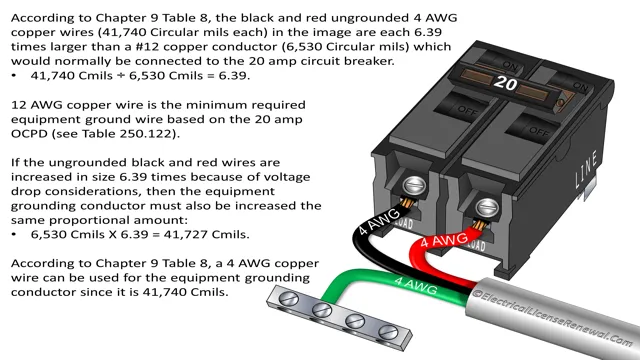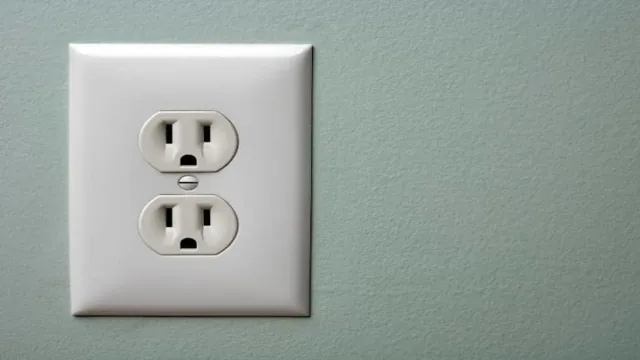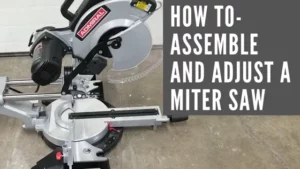As a homeowner, understanding the electrical system in your home is extremely important. One of the key components is the amp service, which serves as the power source for all the electrical circuits in your home. If you are considering upgrading your electrical system, you may be wondering what size ground is required for a 100 amp service.
Before we dive into the answer, let’s take a quick look at what a ground wire is and why it’s necessary. A ground wire is a safety feature that is connected to the ground and the electrical panel. It is designed to prevent electrical shock in case of a surge in electrical current.
Without a proper ground, electrical shock and even fires can occur. Now, back to the question at hand. The size of the ground wire for a 100 amp service depends on a number of factors, including the type of wire being used, the distance between the electrical panel and the main service entrance, and the gauge of the wire.
Generally, a 100 amp service requires a minimum of #6 copper wire or #4 aluminum wire for the ground. It’s important to note that electrical work should always be done by a licensed electrician to ensure your safety and the safety of your home. Upgrading your electrical system can be a big undertaking, but it’s worth it to ensure your home is safe and up-to-date.
With the right knowledge and a qualified electrician, you can upgrade your 100 amp service with confidence.
Understanding the Basics
If you’re setting up 100 amp service, you need to make sure the ground wire is the right size. The size of the ground wire depends on a number of factors, including the length of the wire, the material it’s made from, and the type of load it’s carrying. Generally, for copper wire, you’ll need a ground wire that’s at least 6 AWG for a 100 amp service.
If you’re using aluminum wire, you’ll need a slightly larger ground wire at 4 AWG. It’s important to follow the National Electrical Code guidelines for grounding wire size to ensure safety and avoid potential electrical hazards. Remember, the ground wire acts as a safety net and carries electrical charge away from your electrical devices and appliances, so it’s an important part of any electrical system.
Grounding vs. Bonding
Grounding vs. bonding is a crucial concept to understand when it comes to electrical safety. While both are essential for preventing electrical hazards, their purposes are different.
Grounding refers to connecting electrical equipment and conductors to the earth’s surface to ensure that any electrical faults resulting in current leakage are directed into the earth, preventing harm to anyone nearby. Such faults could be caused by lightning, power surges or damaged insulation. On the other hand, bonding involves connecting various conductive objects together to eliminate any difference in electrical potential that might exist between them.
For instance, different parts of a structure must be bonded together to ensure that current flows smoothly and safely through them, rather than through an unsuspecting person or object. So, while grounding is concerned with redirecting current into the earth, bonding is more about equalizing the potential difference between conductive items. By understanding these concepts, you can ensure that your electrical systems operate safely and effectively, without posing a risk to yourself or others.

National Electrical Code
The National Electrical Code (NEC) is a set of standards that regulates electrical installations across the United States. It is updated every three years to ensure that the latest technology and safety practices are implemented. The NEC covers a wide variety of topics, including grounding, wiring methods, and equipment installation.
Understanding the basics of the NEC is crucial for any electrician, contractor, or homeowner looking to install or maintain an electrical system. One key aspect of the NEC is that it focuses on safety, requiring strict adherence to guidelines to prevent accidents and fires caused by electrical malfunctions. Another important factor is that the NEC sets the standard for uniformity, ensuring that electrical systems meet the same level of safety and quality, no matter where they are installed in the US.
By following the NEC guidelines, you can ensure that your electrical system is not only safe but also up to code.
Determining the Size of Ground
If you’re upgrading your electrical service, you may be wondering what size ground you need for a 100 amp service. The answer depends on a few factors, including the type of grounding system you have and the length of the conductor. Generally, a 100 amp service requires at least a #8 copper conductor for the grounding electrode conductor (GEC) running from the service panel to the grounding electrode.
If you have a longer run or a type of grounding system that requires a larger conductor, you may need to use a bigger size, like #6 or # It’s important to consult a licensed electrician or your local electrical authority for specific requirements in your area. Keep in mind that the size of the grounding conductor is just one aspect of the overall grounding system, which helps protect your electrical system and appliances from power surges and faults.
Wire Size vs. Ground Size
When it comes to electrical wiring, it’s important to know how to determine the size of the ground wire in relation to the wire size. The ground wire is a crucial component in preventing electrical shocks and fires. It is important to determine the correct size of ground wire because it is directly related to the size of the circuit wire, which also has a direct relationship to the amperage the wire can handle.
The National Electric Code (NEC) provides guidelines to determine the required size of the ground wire. The ground wire size should be equal to or larger than the circuit’s hot wire size. For example, if the circuit has a 12-gauge hot wire, you should use at least a 12-gauge ground wire.
Choosing the right ground wire size will help ensure the safety and longevity of your electrical wiring system.
Distance from Service Panel
When it comes to determining the size of the ground wire, the distance from the service panel is a key factor to consider. The further away the panel is, the larger the wire size needs to be. This is because voltage drop can occur over long distances, and a larger wire size will help to minimize this drop.
Additionally, if the wire is too small, it may not be able to handle the electrical load required, which can be dangerous. To determine the correct wire size, it’s important to consult with a qualified electrician who can take into account the specific needs of the installation and the local code requirements. Ultimately, investing in the proper wire size will not only ensure safe and reliable operation, but also help to prevent costly repairs down the line.
Ampacity of the Service Equipment
When it comes to determining the size of ground for the service equipment, the ampacity of the equipment itself plays a key role. The ampacity refers to the maximum amount of electrical current that the equipment can handle, and this information can typically be found on the nameplate or in the equipment manual. The size of the ground wire needed is determined by calculating a percentage of the ampacity of the equipment.
While the exact calculation may vary based on the specific situation, a general rule of thumb is to use a ground wire that is at least 125% of the equipment’s ampacity. This ensures that there is a sufficient path for electrical current to flow safely to the ground in the event of a fault or electrical surge. It’s also important to keep in mind any local codes and regulations that may dictate specific requirements for the size of the ground wire.
By properly sizing the ground wire based on the ampacity of the service equipment, you can help ensure a safe and reliable electrical system.
Recommendations
Are you looking to set up a 100 amp service and wondering what size of ground is needed? It’s important to have the proper ground size to avoid any potential safety hazards. Generally, a 100 amp service will require a 4-gauge copper wire for a grounding conductor. However, this may vary depending on the specific installation requirements and local codes.
It’s always recommended to consult with a licensed electrician to ensure that your installation is up to code and safe. Making sure that your ground connection is properly installed and maintained will not only protect your home and appliances, but also provide peace of mind. So when it comes to what size ground for 100 amp service, it’s best to err on the side of caution and seek professional guidance.
Consult an Electrician
If you’re experiencing electrical issues at home or your current electrical system needs upgrading, it’s important to consult with a professional electrician. Electricians are trained and certified to handle any issues related to your electrical system, from diagnosing problems to repairing and installing new wiring. When it comes to finding a reliable electrician, ask for recommendations from family and friends or check online reviews from reputable websites.
Make sure to do your research and verify that the electrician you hire is licensed and insured, as this will protect you from any liability and ensure that the job is done safely and correctly. Once you find an electrician you trust, don’t hesitate to ask questions and voice any concerns you may have. A good electrician will take the time to explain the process and provide recommendations for the best solution to your electrical needs.
Remember, attempting to fix electrical problems on your own can be dangerous and potentially cause further damage. It’s always best to consult a professional electrician to ensure that your electrical system is running safely and efficiently.
Consider Future Upgrades
When considering future upgrades to your home, it’s important to keep a few key things in mind. First of all, it’s essential to think about the long-term benefits of any upgrades you make. Will they add value to your home or enhance your quality of life in some way? Additionally, it’s crucial to consider the potential costs and time required for any upgrades.
You don’t want to invest in something that will end up being a drain on your resources or a source of frustration in the long run. Finally, it’s important to choose upgrades that are in line with your personal style and preferences. After all, you’re the one who will be living with your home’s new features on a daily basis! By keeping all of these factors in mind, you’ll be able to make informed decisions about which upgrades to prioritize and how to proceed with them.
Conclusion
In conclusion, determining the appropriate size ground for a 100 amp service can be tricky, but fear not! With proper research and professional guidance, you’ll be electrifyingly savvy in no time. Just remember, when it comes to electrical work, safety always comes first; never underestimate the importance of grounding your system properly. So, grab your wires and get grounded, because when it comes to shocks and voltage drops, bigger is definitely better.
“
FAQs
What is the recommended ground wire size for a 100-amp service?
For a 100-amp service, the recommended ground wire size is #8 copper or #6 aluminum.
Is it necessary to install a ground rod for a 100-amp service?
Yes, it is necessary to install a ground rod for a 100-amp service to ensure proper grounding and safety.
How deep should the ground rod be installed for a 100-amp service?
The ground rod for a 100-amp service should be installed at least 8 feet deep in the ground.
Can I use a smaller ground wire size for a 100-amp service?
No, it is not recommended to use a smaller ground wire size for a 100-amp service as it may not provide adequate grounding.
What is the distance requirement between ground rods for a 100-amp service?
The distance requirement between ground rods for a 100-amp service is at least 6 feet.
Do I need to bond the neutral and ground for a 100-amp service?
Yes, the neutral and ground should be bonded together at the main disconnect for a 100-amp service.
Can I use a ground wire instead of a ground rod for a 100-amp service?
No, a ground wire cannot replace a ground rod for a 100-amp service as it does not provide proper grounding.






